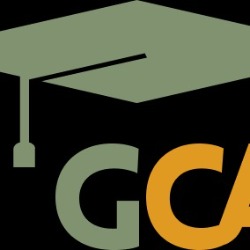Journey into the world of game development with our comprehensive Game Development Course. Designed for aspiring game developers and enthusiasts, this course provides hands-on training in creating interactive games for various platforms. Learn essential programming languages, game design principles, and industry-standard tools to bring your game ideas to life. Whether you’re a beginner exploring game development as a hobby or aspiring to enter the game industry professionally, this course offers a structured approach to mastering game creation.
Module 1: Introduction to Game Development
- Introduction to Game Development
- Overview of game development process
- Roles in game development (Designer, Developer, Artist, Tester)
- History of video games and genres
- Game Design Fundamentals
- Basic principles of game design
- Game mechanics, dynamics, and aesthetics
- Developing a game concept and idea generation
- Tools and Software
- Introduction to game development engines (Unity, Unreal Engine)
- Other essential tools (version control with Git, project management with Trello)
Module 2: Basics of Game Programming
- Introduction to Programming for Games
- Basic programming concepts (variables, loops, conditions)
- Introduction to C# (for Unity) or C++ (for Unreal Engine)
- Game Engine Basics: Unity/Unreal Engine
- Getting started with Unity/Unreal Engine
- Creating and managing projects
- Understanding the interface and basic functionalities
- Developing Your First Game
- Creating a simple 2D game (e.g., Pong or Flappy Bird)
- Basic game physics and controls
- Adding simple UI elements (score, menus)
Module 3: Intermediate Game Development
- Advanced Scripting
- Object-oriented programming concepts
- Managing game states and transitions
- Creating reusable scripts and components
- Working with Assets
- Importing and managing assets (sprites, textures, models, sounds)
- Basics of 2D and 3D graphics
- Animations and particle systems
- Game Mechanics and Gameplay
- Implementing complex game mechanics (power-ups, inventory systems)
- Understanding and applying game balance
- Designing levels and game environments
Module 4: Advanced Game Development
- Artificial Intelligence in Games
- Basics of AI in games
- Implementing pathfinding (A* algorithm)
- Creating NPC behaviors and decision-making systems
- Multiplayer Game Development
- Networking basics
- Creating multiplayer games (local and online)
- Synchronizing game states and handling latency
- Optimization and Performance
- Profiling and debugging
- Optimizing game performance (rendering, physics, memory management)
- Best practices for performance improvement
Module 5: Game Design and Production
- Advanced Game Design
- Narrative and storytelling in games
- Player psychology and engagement
- Designing for different platforms (PC, mobile, console)
- Project Management and Production
- Agile methodologies in game development
- Milestones, sprints, and deliverables
- Managing a game development team
- Testing and QA
- Importance of testing in game development
- Types of testing (unit testing, integration testing, playtesting)
- Bug tracking and fixing
Module 6: Final Project and Industry Insights
- Final Project
- Developing a complete game from concept to playable demo
- Applying all learned concepts and techniques
- Peer review and feedback sessions
- Industry Insights and Career Development
- Preparing a portfolio and demo reel
- Tips for getting a job in game development
- Insights from industry professionals (guest lectures)
- Course Recap and Future Learning
- Recap of key concepts
- Resources for continued learning
- Q&A session
Assessment and Certification
- Regular assignments and quizzes after each module
- Mid-course project (Intermediate game development)
- Final project presentation and peer review
- Certificate of completion
This curriculum provides a structured approach to learning game development, ensuring that students progressively build their skills from foundational concepts to advanced techniques, ultimately preparing them for a career in the industry.




